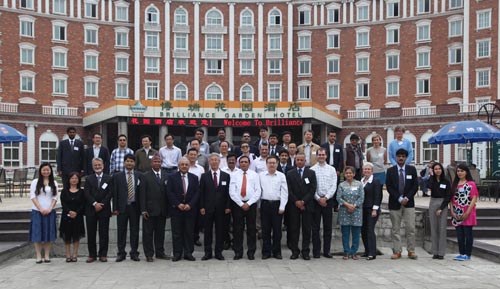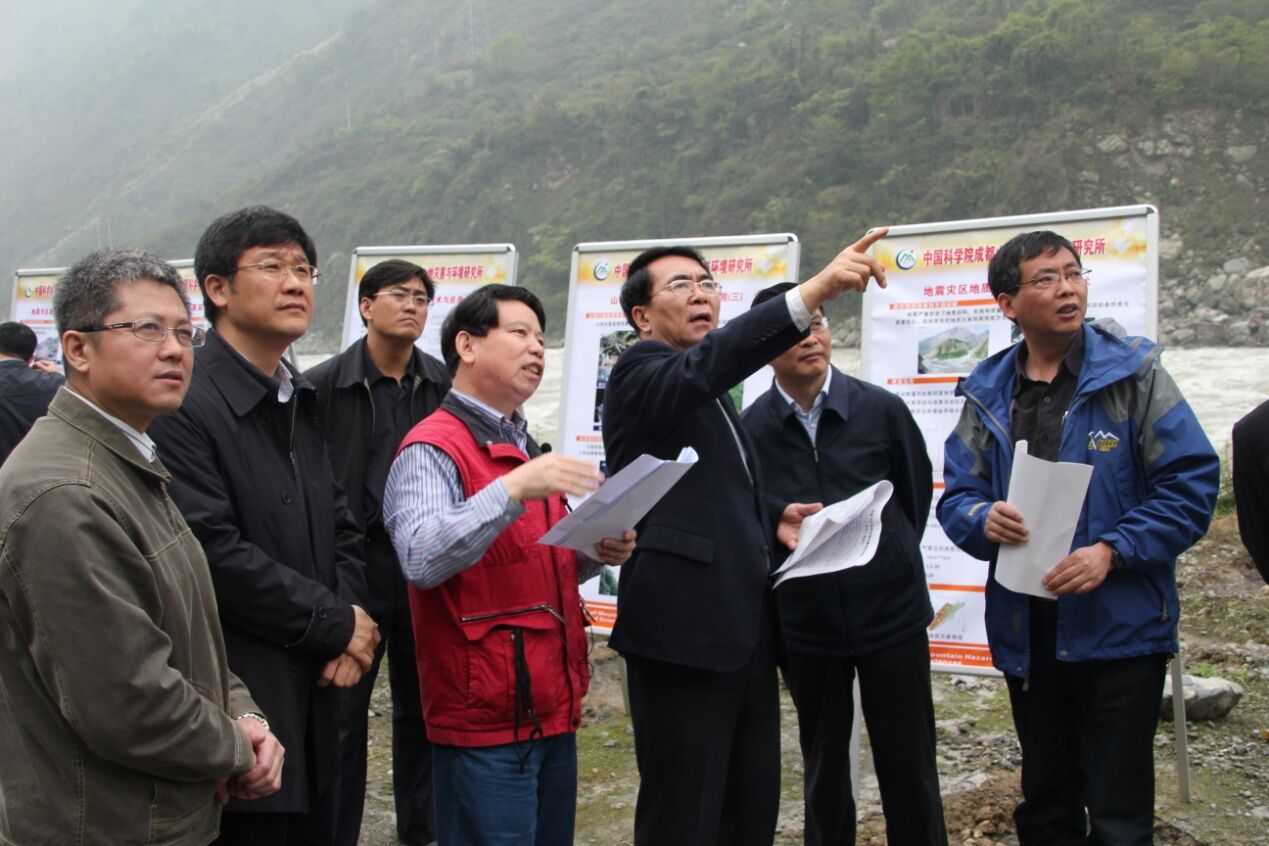“Experts Consultation on a Framework for Long-Term Environmental and Socioeconomic Monitoring and Ecosystem Management in the Hindu Kush Himalayas" was held in Chengdu, China from 12 to 16 May, 2014.
40 experts from around the globe came together to finalize new frameworks for long-term monitoring of the environment and socioeconomic situation and ecosystem management in seven transboundary landscapes in the Hindu Kush Himalayan region. Participants from Austria, China, India, Nepal, Pakistan, Republic of Korea, and the United Kingdom shared their ideas and experiences at a three-day consultation held in Chengdu, China. The consultation was followed by a two-day field trip to the ecosystem management and monitoring sites in the Sichuan Province of China.
 |
|
Experts Consultation in Chengdu(by IMHE) |
Dr Gopal Rawat and Dr Nakul Chettri from ICIMOD presented two papers outlining the draft frameworks for ecosystem management and for long-term environmental and socioeconomic monitoring respectively. Other participants provided guiding feedback on the papers. Dr Eklabya Sharma, Director of Programme Operations at ICIMOD said that an ecosystem approach to resources management is necessary for sustaining ecosystem goods and services at the ‘landscape level’. He added that it is important to monitor both biophysical and socioeconomic status to ensure informed decision making and to effectively address emerging development trends in the Hindu Kush Himalayas.
Prof. ZHAO Xinquan, Director of the Chengdu Institute of Biology, Chinese Academy of Sciences, and Prof. Wei Fangqiang, Deputy Director of the Institute of Mountain Hazards and Environment, Chinese Academy of Sciences, expressed appreciation for the collaboration between ICIMOD and CN-ICIMOD. “As countries give increasing priority to economic development, the challenges of biodiversity conservation are steadily mounting,” said Prof. ZHAO, “and the trade-offs between the two could be balanced through an appropriate approach to management substantiated by better science for informed decision making”.
In his keynote address, Prof. S.P. Singh from the Institute of Technology and Science, Dehradun, India said that the Hindu Kush Himalayas provide essential goods and services to many communities and that the ‘ecosystem approach’ is necessary for sustaining the flow of goods and services. Likewise, Prof. Eun-Shik Kim, Chair of the International Long-Term Environmental Research (ILTER) under the East Asia-Pacific Regional Network, shared the lessons learned from ILTER and emphasized the importance of site-based research and monitoring. He also said that ICIMOD would receive backup technical assistance for the initiatives implemented through its partners in the Hindu Kush Himalayas.
Mr. Philip Bubb from UNEP-WCMC highlighted the need to understand the complex ecosystem dynamics and develop appropriate indicators for effective monitoring, especially in the context of climate change and globalization.
The event was jointly organized by ICIMOD, Chengdu Institute of Biology (CIB) and the Chinese Committee on ICIMOD (CNICIMOD) with support from the Department for International Development (DFID), the German Federal Ministry for Economic Cooperation and Development (BMZ)/Deutsche Gesellschaft für Internationale Zusammenarbeit (GIZ), and the Austrian Development Agency (ADA). 